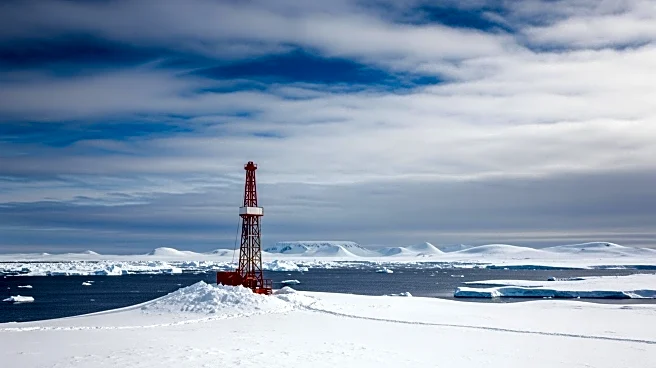What's Happening?
The Trump administration has initiated the process to open Alaska's Arctic National Wildlife Refuge for oil and gas leasing. This decision marks a significant shift from the protections established by
the previous administration, which aimed to preserve the refuge from industrial activities. Indigenous groups and environmentalists have long opposed such developments, citing potential harm to the ecosystem and the disruption of native wildlife habitats. The move is part of a broader strategy to increase domestic energy production, but it has reignited debates over environmental conservation versus economic interests.
Why It's Important?
The decision to open the Arctic National Wildlife Refuge to oil and gas leasing has significant implications for U.S. energy policy and environmental conservation efforts. On one hand, it could boost domestic energy production and contribute to economic growth, particularly in the energy sector. On the other hand, it poses risks to the environment, potentially affecting biodiversity and indigenous communities that rely on the land for traditional practices. The move may also influence public opinion and policy discussions regarding the balance between economic development and environmental protection.
What's Next?
The leasing process will likely face legal challenges from environmental groups and indigenous communities seeking to protect the refuge. These stakeholders may pursue litigation to halt or delay the leasing process, arguing that it violates environmental laws and treaties. Additionally, the decision could become a focal point in political debates, influencing future policy decisions and electoral outcomes. The administration will need to navigate these challenges while addressing concerns from both industry advocates and environmentalists.
Beyond the Headlines
The opening of the Arctic National Wildlife Refuge for oil and gas leasing raises broader questions about the U.S.'s commitment to environmental sustainability and climate change mitigation. It highlights the ongoing tension between economic interests and environmental stewardship, a theme that resonates globally as countries grapple with similar dilemmas. The decision may also impact international perceptions of U.S. environmental policies, potentially affecting diplomatic relations and global environmental initiatives.








